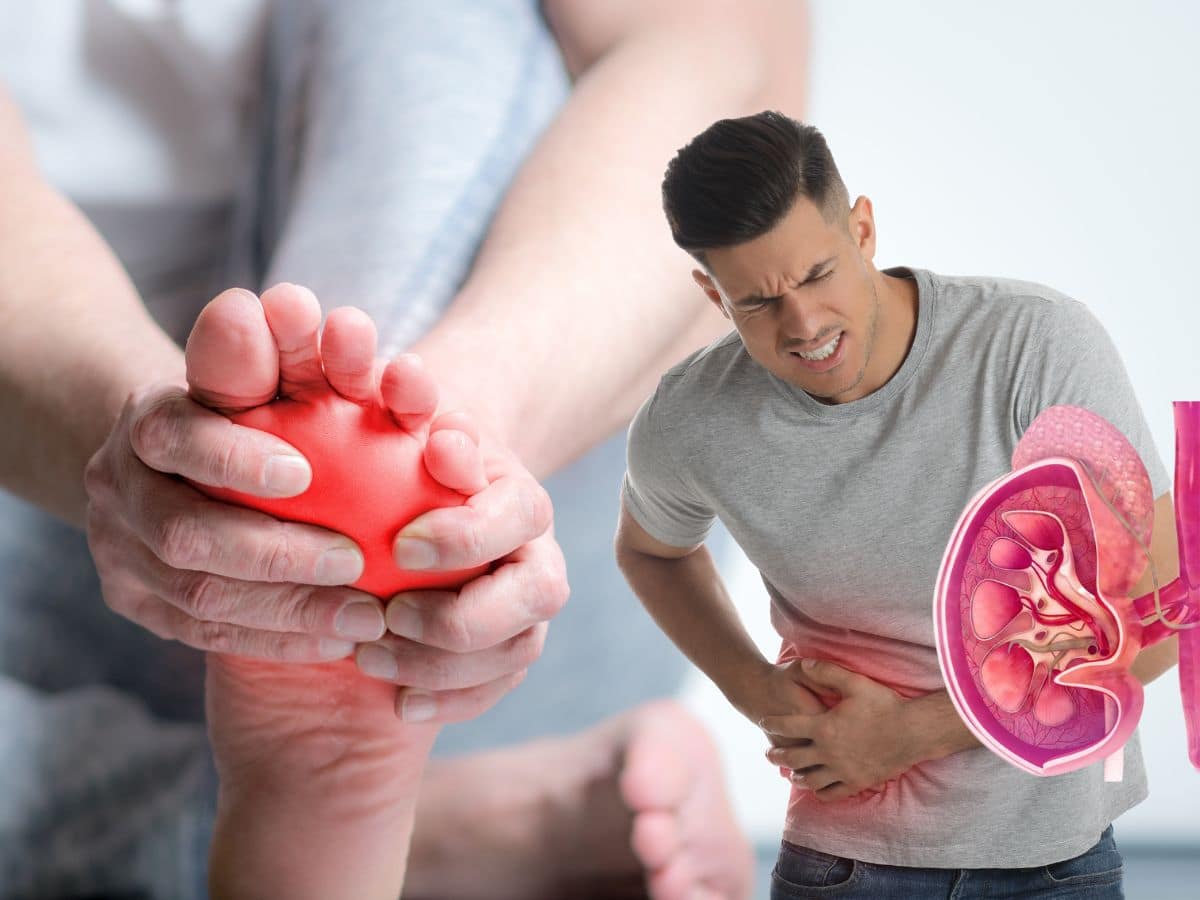Share this @internewscast.com

Signs of kidney stones in men: Here are the top 7 ways in which the body can send you indications when your kidneys are not functioning properly due to the formation of kidney stones.
Kidney stones symptoms in men: Kidney stones are a common issue for numerous men, and the discomfort and intense pain they bring can be debilitating. Stone-like hard deposits may start appearing in the kidneys once a man’s urine volume reduces or when stone-forming substances accumulate in surplus. Notably, dehydration and increased levels of calcium, oxalate, or uric acid play a major role in kidney stone formation. Furthermore, men who have a family history of kidney stones stand at higher risk. In this article, we take a close look at the various ways in which the formation of kidney stones can affect the body, and how one can keep the organ safe and healthy.
The warning signs of kidney stones typically present as severe discomfort around the groin, side, back or abdomen. Men may also experience recurring waves of pain that can become nearly unbearable when the stones migrate within the urinary tract. Scroll down to learn about the top 7 unusual signs and symptoms of kidney stones in men’s legs and feet, especially at night.
Most Common Symptoms of Kidney Stones
Kidney stones can be a real nuisance, especially for men. These miniature, solid items that pile up in your kidneys can cause a myriad of symptoms and vary much from person to person. Some of the most common signs and symptoms of kidney stones in men are:
Unexplained Stomach Pain
One of the most common symptoms of kidney stones is intense pain in the belly or back. This aching feeling can come undulate and might radiate out to the groin area.
Difficulty While Peeing
Those plagued with kidney stones may experience discomfort or a fiery sensation during urination. This unease generally stems from the stone rubbing up against the urinary tract.
Urine With Blood Strains
Having blood in your urine, referred to as hematuria, is another typical symptom of kidney stones. It can be unnerving and is something that needs to be evaluated by a healthcare professional.
Frequent Peeing At Night
Kidney stones can also trigger an increased urge to pee, as your body tries to expel the stone through urine.
Diarhhoea/ Change In Bowel Movement At Night
Some folks may feel nauseous or even note a visible change in their bowel movement, especially at night.
7 Unusual Signs of Kidney Stones In Legs and Feet At Night
It’s worth noting, that some unconventional symptoms of kidney stones can be noticed in the legs and feet, especially at night. These less familiar signs can still point to the existence of kidney stones.
Unexplained Leg Pain
Those affected by kidney stones may experience leg pain, specifically in the calf or thigh. This could be sharp or dull and often gets worse at night time.
Unusual Swelling In Legs and Feet
Swollen feet, ankles, and legs can be a sign of kidney stones. Pain and inflammation caused by the stones can cause such swellings.
Numbness or a Tingling
The presence of kidney stones can sometimes lead to a numb or prickly sensation in the legs or feet due to nerve involvement.
Unmanageable Leg Cramps
The electrolyte balance in your body can be disrupted by kidney stones, and this may lead to muscle cramps or spasms in the legs and feet, frequently at night.
Heaviness On Legs At Night
The discomfort kidney stones cause can make walking or even standing quite tricky for some folks.
Changes in Skin Color
Albeit rarely, the presence of kidney stones could alter the skin colour or temperature in the legs or feet due to impacted blood flow.
Restless Legs
Those affected may also encounter restless legs syndrome during the night due to the pain in their extremities.
How to Diagnose Kidney Stones?
A series of assessments like urine tests, physical exams, blood tests or imaging studies can effectively diagnose kidney stones, revealing their location and presence. The nature and size of these stones are pivotal in determining the most suitable treatment. Small stones may naturally be flushed out the urinary tract with ample fluid consumption and prescribed medicine for pain management. Conversely, bigger stones could necessitate procedures such as lithotripsy for easier elimination.
Kidney Stones In Men: How To Keep The Kidneys Safe and Healthy?
Preventing kidney stones is often achieved by maintaining regular hydration and a balanced, low-oxalate and low-sodium diet. Men who’ve previously had kidney stones are advised to work alongside healthcare experts for personalized prevention plans, which may include medication, dietary alterations and periodic appointments.
The appearance of kidney stones can detrimentally affect a man’s lifestyle due to the associated discomfort and pain. More serious cases may lead to complications including urinary infections, kidney damage or even blockages that require surgery. It is, therefore, important for men to prioritize their urological health and to quickly consult their doctors if they experience kidney stone symptoms.





